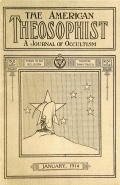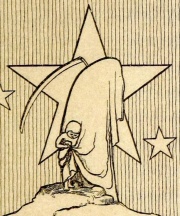Año Nuevo
Año Nuevo es el momento en que un nuevo año calendario comienza. En el calendario Gregoriano (el que se usa hoy en todo el mundo) cae el 1 de Enero. El mes de Enero ("Ianuarius" o "Januarius") fue el primero del año en el calendario Romano desde el Rey Numa Pompilius cerca de 700 AC. Se piensa convencionalmente que Ianuarius tomó su nombre de Janus, el dios-de dos caras del comienzo, aberturas, pasajes, puertas y portales, pero según los antiguos almanaques de los granjeros romanos, Juno era la deidad tutelar del mes.[1] Durante la Edad Media bajo la influencia de la Iglesia Cristiana, muchos países cambiaron el comienzo del año a una de las varias fiestas Cristianas importantes. Entre el 1500 al 1700 el 1 de Enero se convirtió en el comienzo oficial del año en la mayoría de los países Europeos.[2]
En la visión Teosofia, la época del año nuevo coincide con una estación en la que las energías sutiles de la Tierra comienzan a fortalecerse a fines de diciembre, luego del Solsticio de Invierno.
General description
The New Year is traditionally seen as a new beginning. Different cultures and religions have special ceremonies to celebrate the passing from the old to the new cycle. Among the traditional customs for this transition is to review the developments that took place in the year that is ending. H. P. Blavatsky supported this attitude, although she warned about the danger of dwelling excessively in the past. The aim of the review is to learn the lessons we can draw from past actions to then turn our face towards the new year ahead:
Let it [the old year] go, with its joys and triumphs, its badness and bitterness, if it but leave behind for our instruction the memory of our experience and the lesson of our mistakes. Wise is he who lets "the dead Past bury its dead", and turns with courage to meet the fresher duties of the New Year; only the weak and foolish bemoan the irrevocable.[3]
Although the beginning of new year may seem to be just a conventional date, in the Theosophical view the last days of December mark the start of a cycle in which the subtle energies of the planet are more powerful. Therefore, the resolutions made by the earnest aspirant at this time may find additional strength for its fulfillment:
Let no one imagine that it is a mere fancy, the attaching of importance to the birth of the year. The earth passes through its definite phases and man with it; and as a day can be coloured so can a year. The astral life of the earth is young and strong between Christmas and Easter. Those who form their wishes now will have added strength to fulfil them consistently.[4]
These energies can be manipulated by a person due to the presence of the powers of thought and will in him, and according to how he uses them will be the karmic result brought about. The earnest spiritual seeker, aware of these facts, is careful not to use these energies in a selfish way. Instead, he can take advantage of this time not only to gain spiritual strength but also to send blessings to

